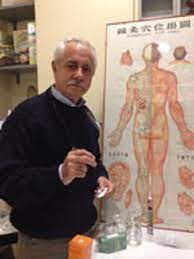Alchimia e spagyria
Vasta gamma di prodotti ad alta concentrazione e titolazione standardizzata
Ricerca e innovazione
Attività di ricerca e sviluppo in collaborazione con gli esperti del settore
Prodotti certificati
Certificazione a cura del Ministero della Salute della Repubblica Italiana
Fitoterapia alchemico spagirica
Da oltre 20 anni offriamo una vasta gamma di prodotti naturali ad alta concentrazione e titolazione standardizzata
Ultime novità
Nuovi prodotti della linea Herboplanet
Antiossidanti
Linea Herboplanet prodotti con azione antiossidante
Adattogeni
Linea Herboplanet prodotti con azione tonico adattogena
Apparato cardiocircolatorio
Linea Herboplanet prodotti utili alla normale funzionalità dell’apparato cardiocircolatorio, vasi sanguigni, microcircolazione
Apparato gastrointestinale
Linea Herboplanet prodotti utili alla normale funzionalità dell’apparato gastrointestinale, sistema digerente, intestino
Apparato osteo articolare
Linea Herboplanet prodotti utili alla normale funzionalità dell’apparato osteo articolare, ossa, cartilagini, articolazioni
Apparato urinario
Linea Herboplanet prodotti utili alla normale funzionalità dell’apparato urinario e genitale
Sistema epatobiliare
Linea Herboplanet prodotti utili alla funzionalità del sistema epatobiliare, fegato, cistifellea, pancreas
Apparato respiratorio
Linea Herboplanet prodotti utili alla normale funzionalità delle vie respiratorie, naso e gola
Pelle e cuoio capelluto
Linea Herboplanet prodotti utili al mantenimento di pelle e cuoio capelluto sani
Sistema immunitario
Linea Herboplanet prodotti utili alla normale funzionalità del sistema immunitario
Sistema nervoso
Linea Herboplanet prodotti utili alla normale funzionalità del sistema nervoso e benessere mentale
Alchemici particolari
Linea Herboplanet prodotti alchemici particolari
Drenanti logge cinesi
Linea Herboplanet prodotti drenanti logge cinesi
Rimedi per vasi energetici
Linea Herboplanet prodotti rimedi per vasi energetici
Corsi e conferenze
Eventi organizzati da Herboplanet



















